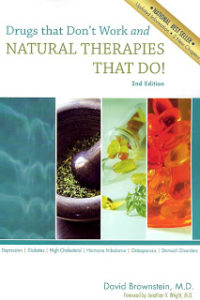My last blog post dealt with the nonsense of mandating flu vaccinations for medical personnel. I showed you that the flu vaccine is not effective at preventing the flu nor does it minimize complications from the flu. The Cochrane group is an independent medical research group designed to help physicians put evidence into practice. The latest article by the Cochrane group is titled, “Are Neuraminidase inhibiters effective for preventing and treating influenza in healthy adults and children?” (1)
This article analyzes whether it is wise to use anti-viral medications to treat a patient who already has the flu.
Tamiflu is the most commonly prescribed anti-viral medication for treating the symptoms of the flu. You would think that Tamiflu must work well as it is widely prescribed by conventional doctors. However, the new Cochrane report stated, “Treating previously healthy patients with Tamiflu reduces the duration of influenza symptoms by approximately 21 hours.”
Folks, I can’t make this stuff up.
Tamiflu costs approximately $120 for a full course of treatment. Not only does Tamiflu fail to treat the flu, it is also associated with a host of adverse effects including nausea, vomiting, diarrhea, headache, and abdominal pain. Gee, I thought those were the symptoms of the flu! It has also been associated with more severe side effects such as hepatitis, anaphylaxis, cardiac arrhythmias, seizures, and dangerous neuropsychiatric side effects such as hallucinations and suicide. Do you think all those side effects are worth it to reduce the severity of the flu by 21 hours?
Perhaps in the presidential debate tonight, the two candidates can agree that we should not be spending large sums of our money on ineffective drugs that have too many side effects. More information on the side effects from commonly prescribed drugs can be found in my book, Drugs That Don’t Work and Natural Therapies That Do.
What can you do if you get the flu? Let me start with my mother’s advice; eat chicken soup and drink a lot of fluid. Furthermore, take vitamins C (10-20,000mg/day), D (50,000U/day), and A (25,000U/day) for a few days. That will shorten the course of the flu without costing hundreds of dollars and exposing you to serious adverse effects.
(1) American Family Physician. October 1, 2012 p. 624













No Comments